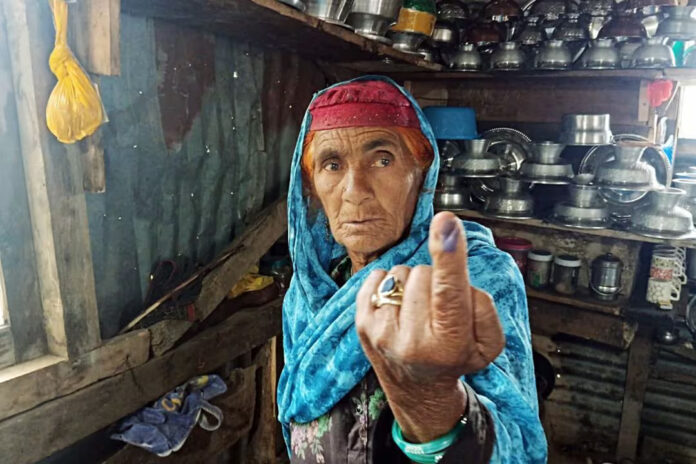Paromita Das

GG News Bureau
New Delhi, 28th September. Bharat’s decision to invite foreign diplomats to observe the upcoming elections in Jammu and Kashmir represents a significant diplomatic shift, one that has both domestic and international implications. Since the revocation of Jammu and Kashmir’s semi-autonomous status in 2019, New Delhi has made several efforts to integrate the region more fully into the national fold. The decision to hold elections, the first since 2014, while opening the process to foreign observation, signals a confident assertion of Bharat’s sovereignty over the region and an effort to project normalcy after years of political uncertainty.
This move holds particular weight considering the long-standing territorial dispute with Pakistan and Jammu and Kashmir’s history of insurgency and conflict. By inviting diplomats from 15 countries to witness the electoral process, Bharat seeks to directly address international concerns about human rights and democratic governance in the region, which were heightened after the revocation of Article 370. New Delhi appears intent on showcasing a peaceful, organized election, aiming to alter global perceptions of Kashmir from a conflict zone to a region on the path to stability, development, and democratic governance under Bharatiya jurisdiction.
The decision to allow foreign diplomats follows other high-profile international engagements in Kashmir, such as the G20 tourism meeting held in 2023. These actions seem designed to project an image of normalcy and integration, positioning Kashmir as a key part of Bharat’s national narrative rather than a region marked by unrest. Through these gestures, Bharat is seeking to balance its internal narrative with external perceptions, highlighting democratic processes in the valley while countering any narrative that portrays the region solely through the lens of conflict.
However, this strategy also raises questions about the timing and the necessity of foreign involvement in an election process that Bharat has historically claimed as an entirely domestic matter. Critics, including opposition figures from within Kashmir, have pointed out that Bharat’s electoral processes are among the most respected globally and do not require foreign validation. Moreover, Bharat has long resisted any international intervention in Kashmir, arguing that it is a purely internal issue. This newfound openness to foreign observers may be perceived by some as a contradiction to Bharat’s traditional stance on non-interference.
Despite these concerns, it is important to view this diplomatic overture within the broader context of Bharat’s international ambitions. By inviting foreign diplomats to observe the election process, Bharat is not seeking external validation but is rather signaling its confidence in the democratic systems in place in Jammu and Kashmir. It is a move intended to project transparency and democratic strength while simultaneously reinforcing its sovereignty over the region.
The initial phases of voting have shown promising signs of public engagement, with a significant voter turnout indicating that many residents are willing to participate in the democratic process. This in itself sends a powerful message to the international community. Whether this electoral exercise will change long-standing international perceptions of Kashmir remains to be seen, but it undoubtedly reflects Bharat’s determination to manage both internal governance and external narratives with a bold, calculated approach.
Conclusion
Bharat’s decision to invite foreign diplomats to observe the elections in Jammu and Kashmir is a strategic gamble, aimed at balancing domestic objectives with international diplomacy. While critics may argue that it contradicts Bharat’s long-standing position of non-interference in its internal matters, the move reflects New Delhi’s growing confidence in managing global perceptions of Kashmir.
It also underscores the complexity of the situation in the region. While the presence of foreign diplomats may not immediately shift entrenched views about the conflict, it signals Bharat’s intention to reframe the narrative by showcasing a functioning democracy in one of its most sensitive regions. This bold step marks a significant shift in Bharat’s approach, indicating that the country is not only prepared to address international concerns but also confident enough to open up its internal processes for external observation.
Ultimately, this diplomatic move may serve Bharat’s broader geopolitical interests by positioning it as a mature, stable democracy in a volatile region. Whether or not it succeeds in changing global perceptions of Kashmir, it reinforces Bharat’s determination to control the narrative and highlights its resolve to maintain sovereignty while showcasing democratic governance.
The post Bharat’s Strategic Shift: Inviting Foreign Diplomats to Observe Jammu and Kashmir Elections appeared first on Global Governance News- Asia's First Bilingual News portal for Global News and Updates.




